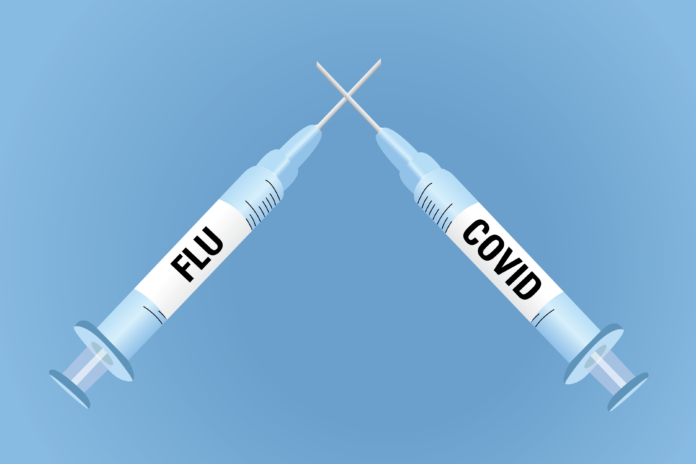Health experts give advice on how to mitigate the effects of influenza and COVID-19
Several factors will affect how this flu season will unfold, according to Dean Blumberg, the chief of pediatric infectious diseases at UC Davis Children’s Hospital. On one hand, Blumberg expects there to be an increased transmission of the coronavirus starting in the fall and extending into the winter since SARS-CoV-2 is a winter respiratory virus. With the current masking and social distancing protocols in place, however, there may be decreased transmission of influenza, meaning a milder flu season.
Blumberg explained that evidence of this was seen in several places in the southern hemisphere, like Australia, during their respective flu season. Daniel Colby, an assistant professor in the department of emergency medicine at UC Davis Health, added that although it is still important to consider other factors that influenced this phenomenon, these cases give him hope that the U.S. will also have a mild influenza season.
It is important to minimize the spread of influenza to make sure healthcare systems are not overwhelmed, Colby said. If there is a surge of both COVID-19 and the flu simultaneously, this could stress the system to its capacity.
“A big concern is that we want to make sure that healthcare systems’ capacity is available to treat everybody who needs to be treated,” Blumberg said. “So that’s why we are strongly continuing to recommend the social distancing and the mask wearing as well as everybody getting the influenza vaccine this year. If there’s a surge of either COVID or influenza patients it may fill up the ICUs and we may not have care available who need it.”
In order to minimize the influenza spread, Blumberg advises all citizens to get vaccinated as soon as possible, as it takes two weeks to develop immunity after receiving the vaccine, which lasts for six months. He explained that since the most common month for the influenza season to hit its peak is February, getting immunized now will make sure people will have immunity until then.
Although it is known that coinfections of COVID-19 and influenza are possible, Colby explained that there is not enough information about the coronavirus to determine what will happen if a patient contracts both viruses. This is something that can only be known once the flu season hits.
“Honestly, in my opinion, no one in the world is truly a COVID expert still because the disease is too new,” Colby said.
Despite the uncertainty of this upcoming fall and winter, the Department of Public Health Sciences is setting up programs such as the Aggie Public Health Ambassadors and Healthy Davis Together to continue to help UC Davis students and the larger Davis community navigate the pandemic. Bradley Pollock, the associate dean for public health sciences explained that the student ambassadors will be helping with COVID-19 screening on campus. In addition, he hopes that they will be able to reach students living off campus by setting up testing kiosks in communities in the future. As Colby explained, distinguishing flu symptoms from COVID-19 symptoms is very difficult, so it is important that people get tested even if they experience influenza-like symptoms.
“People don’t know a lot about propagation of the virus, but one person gets infected and you have this exponential spread,” Pollock said. “You get this incredible one case turns into a huge number of people, so [we’re] trying to break the chain of that propagation.”
Pollock hopes that by properly educating the ambassadors about COVID-19, their efforts along with the city’s efforts through the Healthy Davis Together program will help control the spread of COVID-19 and incentivize others to continue practices such as social distancing and masking. Colby added that students should continue to listen to public health experts and science as we progress into uncertain circumstances.
“I know we’re all tired and would like this to be over, but I think with the change in season, it’s more important than ever for people to take scientifically proven actions that we know will decrease transmission, and that’s the social distancing and wearing a mask,” Blumberg said. “Those are the most important things that we can do to decrease risk of transmission and keep us all healthy and so that we can eventually return to our normal way of life.”
Written by: Michelle Wong — science@theaggie.org



